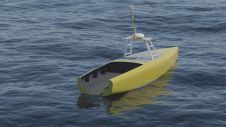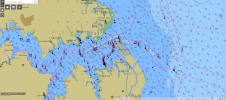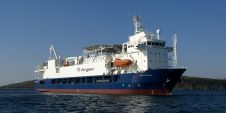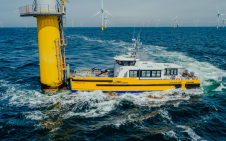FIG Advisory Committee of Commission Chairs (ACCO)
New ACCO
Last autumn a new ACCO was established to serve a new four-year term, from 2007-2010. A first face-to-face meeting of the ACCO was held in February 2007 for all newly appointed Commission Chairs, the members of ACCO, to receive direction from FIG Council, work towards finalising their work plans, participate in some strategic planning and prepare for Working Week in Hong Kong. On the FIG tab, ACCO members from Australia, Canada, Denmark, Finland, Germany, Greece, Hungary, Slovakia and the UK gathered in Bratislava, Slovakia, chosen as meeting place for its central location and affordable venue. The Chamber of Surveyors and Cartographers in Slovakia kindly co-hosted the meeting, which provided a unique forum for the Commission Chairs to identify opportunities for collaboration on joint working groups and future activities. The ACCO was also asked to consider the merits of introducing a formal system of peer review to serve the interests of authors contributing to FIG conferences and the establishment of a FIG ‘Virtual Journal’.
Disbursements and Grants
FIG’s total annual budget for special project and publication grants is currently e15K. Additionally, each commission is allocated an annual disbursement of e2.5K to support its activities.
Work Plans
While each commission operates in accordance with its own work plan, the strategic direction of all commission activity is guided by FIG Council Work Plan and policy. For example, at the recommendation of Council it was agreed that all commissions would appoint a FIG Standards Network liaison as well as a Commission 2 (Professional Education) liaison. A central theme of the Council Work Plan is capacity building. This is significant to all commissions and in the case of Commission 4 serves as one basis for our co-operation with the IHO via the FIG taskforce on Institutional Development. The link between Council and the commissions is personified by FIG vice-president Matt Higgins (former Chair Commission 5) who is Council’s representative on ACCO, and by Dr Chryssy Potsiou (Chair Commission 3), ACCO representative on Council.
Peer Review
At the February ACCO meeting, Dr Rudolph Staiger (Chair Commission 5) presented a proposal to implement a voluntary Peer Review System for papers for conferences. Key to this proposal was the provision of a FIG service to cater for those authors whose academic and professional development requires that their work be peer reviewed. A ‘blind review’ process for grading papers was proposed, with consideration given to a two-tiered approach to serve both conferences and a possible virtual journal, the latter requiring a more stringent review model. An ad hoc Peer Review System workgroup (chaired by Dr Staiger, with participation by ACCO members from Commissions 2, 3, 4, 5 and 9) was established to report back by May 2007 on the guidelines and format of a review process.
Virtual Journal
President Enemark has proposed the creation of a FIG Virtual Journal as a means to publish peer-reviewed papers: virtual because of the immense cost of producing and distributing a hardcopy journal. The virtual journal could contain the products of the peer-review process for FIG conferences provided these passed a more intensive, ‘next-step’ peer-review process for the journal. It was further proposed that the FIG Surveyor’s Reference e-Library would continue to collect all papers accepted by FIG conferences, and that the Virtual Journal would contain only peer-reviewed papers. The FIG monthly e-Newsletter would continue to publish the ‘Article of the Month’, to accommodate high-quality papers where the author elects not to submit their work to a peer-review process.
Balance
The ACCO is composed of geomatics professionals from nation–al (government) organisations, academia and industry. While current membership representation within the present ACCO appears to be weighted more towards academia, I am glad to report that Commission 4 is entering this new work term with a more equal balance of representation within our executive.
Grassroots
Collectively, ACCO represents all the major surveying disciplines, and with direction from FIG council we will have the capacity to respond to emerging issues of concern to our stakeholders in the international community. Within the scope of Hydrography, Commission 4 is focusing on issues relevant to industry, academia, national surveying and mapping organisations, and National Hydrographic Offices. FIG is both a scientific and a technological organisation, and one of its main products is the development of good practice resulting from the collective research and development of participant member nations. For Commission 4 this deliverable extends not only to the broader Hydrographic community but includes the ‘grassroots’ surveyor.
E-mail: Andrew Leyzack C.L.S

Value staying current with hydrography?
Stay on the map with our expertly curated newsletters.
We provide educational insights, industry updates, and inspiring stories from the world of hydrography to help you learn, grow, and navigate your field with confidence. Don't miss out - subscribe today and ensure you're always informed, educated, and inspired by the latest in hydrographic technology and research.
Choose your newsletter(s)
























